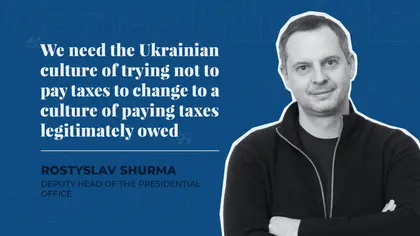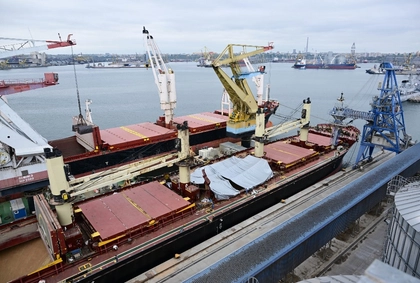With an eye on the post-war future for Ukraine, the government is looking at how to restore the economy after the war. In addition to developing a Marshall Plan and seeking assistance from countries around the world, the Presidential Office (PO) is preparing important reforms to the nation’s tax system.
Rostyslav Shurma, Deputy Head of the PO and the author of the reform, is proposing a “10-10-10” taxation model. The goal - to introduce a single rate for three main taxes: on profits, on individual incomes, and on value-added. He says that the reforms will make Ukraine competitive among the countries of Eastern Europe in the fight for foreign investors, which the country will rely on for recovery after the war.
However, these tax reforms were not ultimately supported by the International Monetary Fund (IMF). Although the new memorandum between Ukraine and the IMF mentions the need to reform the tax system, it lacks details.
In an interview with Kyiv Post, Shurma says that they have already made great achievements, and predicts that this year the reforms will be adopted by the parliament.
You are an proponent of the "10-10-10" tax reform. Please explain its uniqueness and anti-corruption nature.
There are three components to this tax reform. The first is competitiveness with the tax systems of other countries. Our main competitors are countries in Eastern Europe - Romania, Bulgaria, Poland, Baltic, Slovakia, and Hungary. Accordingly, we are looking at what conditions the reforms offer for businesses.

Ukraine’s 2025 Economic Forecast: GDP Growth, Inflation, Ongoing War
Based on this, we can’t have worse tax conditions than other Eastern European nations. Because in these countries there are a number of other competitive advantages - membership in the European Union and NATO, lower military risks, and direct access to markets. That is, they can offer better conditions than Ukraine by default. And, in fact, we see the result - a huge number of factories are being built right now in these countries.
At each of these plants, there are at least 3-10 thousand jobs, which gives hundreds of millions of dollars in taxes and billions of dollars in investments.
And how many large enterprises have been built on the territory of Ukraine? Zero. Potentially we could compete for each of these objects. But it is necessary to offer favorable conditions.
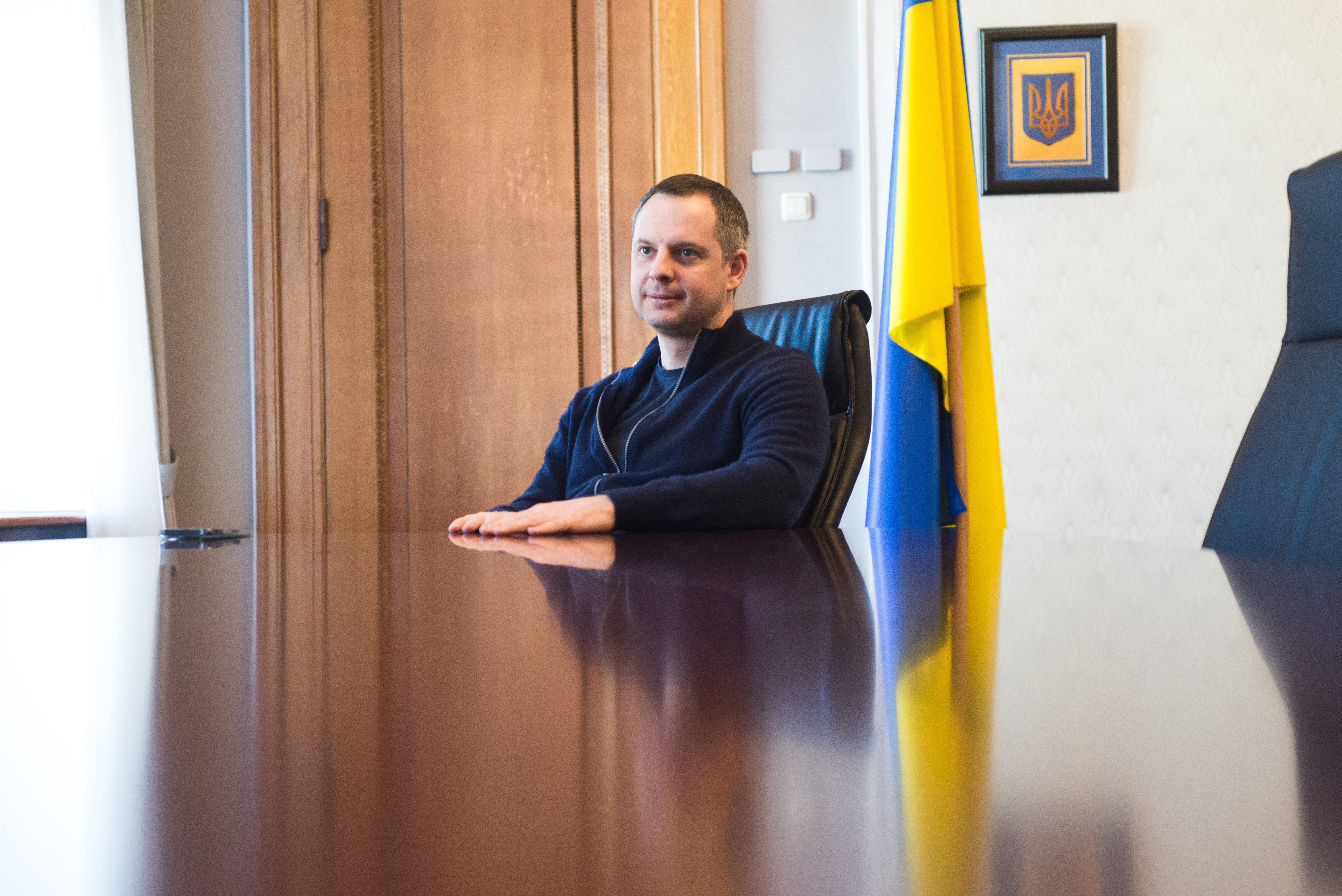 Rostyslav Shurma. Photo by Zoya Shu
Rostyslav Shurma. Photo by Zoya Shu
And taxes are one of the important components for making decisions by such companies. Therefore, we are looking at the tax situation in these competing countries, and the conditions in Ukraine should not be worse.
The second component is anti-corruption. On the one hand, there is the option of high taxation rates. On the other hand, there is an option for tax minimization. And there is a great offer of such services. Very often these services are supported by both the tax sphere and law enforcement.
So it is obvious that all this works like a closed circle. To fight this with fiscal methods, as the practical experience has shown, is actually impossible because the system that lives on this can’t fight itself.
The only way forward is to offer conditions that are economically competitive. That is, there should be no economic incentive to engage in tax minimization, and there should be no reversibility of punishment.
And the third component is special attractive tax conditions during the development period.
How can this be achieved?
The tax rate should be significantly lower and the cost of minimization significantly higher. And the punishments for any tax evasion should be much greater. That is, in fact, anti-corruption.
If we combine the first point and the second, it will give significant advantages to the state and business. And the figure of “10 percent” did not appear just because it is a beautiful figure, but because it exactly corresponds to these two criteria.
I would like to emphasize that there is no goal to make this rate precisely at 10 percent. Whether it will be 9 percent, 12 percent, 14 percent, this is already the product of discussions and calculations, as well as compromise with international partners.
We don't need to wait for the end of the war to adopt tax reform.
I think Ukraine, like no other, has the right to an exemption in order to create special conditions so that after the war when we are rebuilding the country - we need to offer truly unique conditions for 5-10 years not only in terms of taxes but also in terms of the regulatory environment. We have to make it more attractive to build and develop business in Ukraine than in other jurisdictions.
As I understand it, you don't want to lower taxes on everything. There are some areas where, on the contrary, you are proposing to increase them.
The question is whether to get rid of any tax privileges. That is, we adhere to the principle of equal rules for all - for medium-sized businesses, for large businesses, for local or international businesses. No subject should have special preferences. The same applies to industries. There should be no tax privileges. So if someone is exempt from VAT today, then it undermines fair competition and these privileges must be abolished.
Where do we want to raise taxes? More precisely, bring them to the average European standards. These are certain specific categories.
First of all, we are talking about alcohol, cigarettes, gasoline and diesel.
The second component is ecology. That is, environmental taxes in Ukraine are tens of times lower than in Europe. Taking into account the integration into the EU, we will undoubtedly have obligations to align these taxes with European standards.
The third component is the extraction of minerals. This is our national wealth, and we must definitely establish a fair taxation system. This does not mean that everything needs to be raised. In most cases, it is necessary to establish a differentiated taxation, depending on the level of world prices for certain goods.
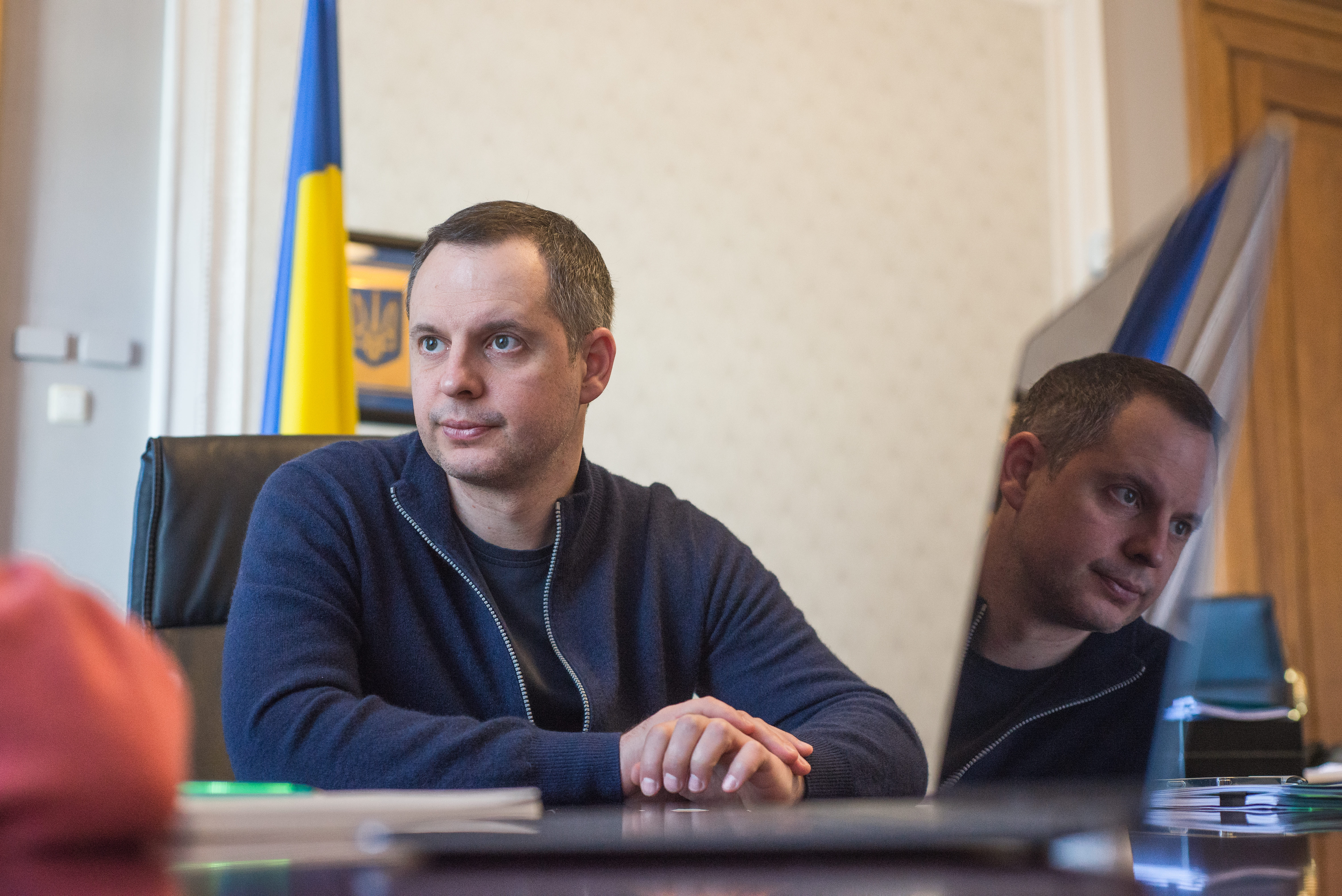 Rostyslav Shurma. Photo by Zoya Shu
Rostyslav Shurma. Photo by Zoya Shu
When there are high prices for certain materials, a higher rate should be applied. When a market collapse is observed, in order to prevent production stoppage, a lower rate is applied. As an example of this, natural gas, iron ore.
This does not mean an increase in tax rates, it means a more fair distribution of profits between the state, the resource owner and the owner of these licenses.
If the taxes on tobacco, alcohol, and fuel are increasing, will consumer prices also increase accordingly?
Yes, on one hand. On the other hand, the VAT will be reduced as a result of this, thus compensating for the price increase.
However, tobacco, alcohol and fuel should not be cheap. This is a general global practice in order to create the right incentives to decrease consumption.
You said that there should be strict penalties for businesses that, even after the tax reform, will try to evade paying taxes. What kind of penalties should they be?
First of all, we are talking about financial sanctions, increasing fines, and maybe even reintroducing criminal liability for tax evasion.
Is there criminal liability now?
Yes, it is but in a somewhat modified and specific form. That is, the law on liability needs to be worked on.
In the US, tax crimes are among the most serious and the criminal liability for them is also high. I think it's a good example of how to form a tax culture.
The President's vision is to make the whole country work officially – above board.
What kind of imprisonment can be for non-payment of taxes?
No need to sit, need to pay taxes. We have no goal to put someone in prison. The goal is to change people's behavior. So that our culture of not paying taxes will change to a culture of paying taxes. Because, unfortunately, 90% of business is now somehow involved in tax minimization.
Is the military tax being reconsidered?
Absolutely, while there is war, the military tax will remain. Of course, we will think about its certain transformation. We must achieve fiscal neutrality. We cannot afford a failure in the revenue part of the budget, especially considering that we need to finance military expenses.
Therefore, perhaps we will review the base of taxation of military tax. And one of the options being considered in our model is the introduction of a transaction tax, effectively a tax on turnover on any business transaction that is easy to administer.
What will a Ukrainian citizen get from the proposed tax reform?
They will get many benefits. The first key plus is that after the implementation of the tax reform, in fact, every citizen will receive an official salary without additional losses, and will be able to use all the services provided by the state.
The second - if you received an official salary, then the reduction of taxes will automatically lead to an increase in salary. If today an entrepreneur spends 50 percent of tax on salary, then after the reform he will spend 10 percent or 15 percent.
The third component is very important - this is the level of prices because the reduction of VAT will lead to a decrease in prices for a large number of goods and services used by people. Or at least inflation, which is quite high, will be restrained.
Is the Ukrainian business connected to the discussion of the reform?
Yes, absolutely.
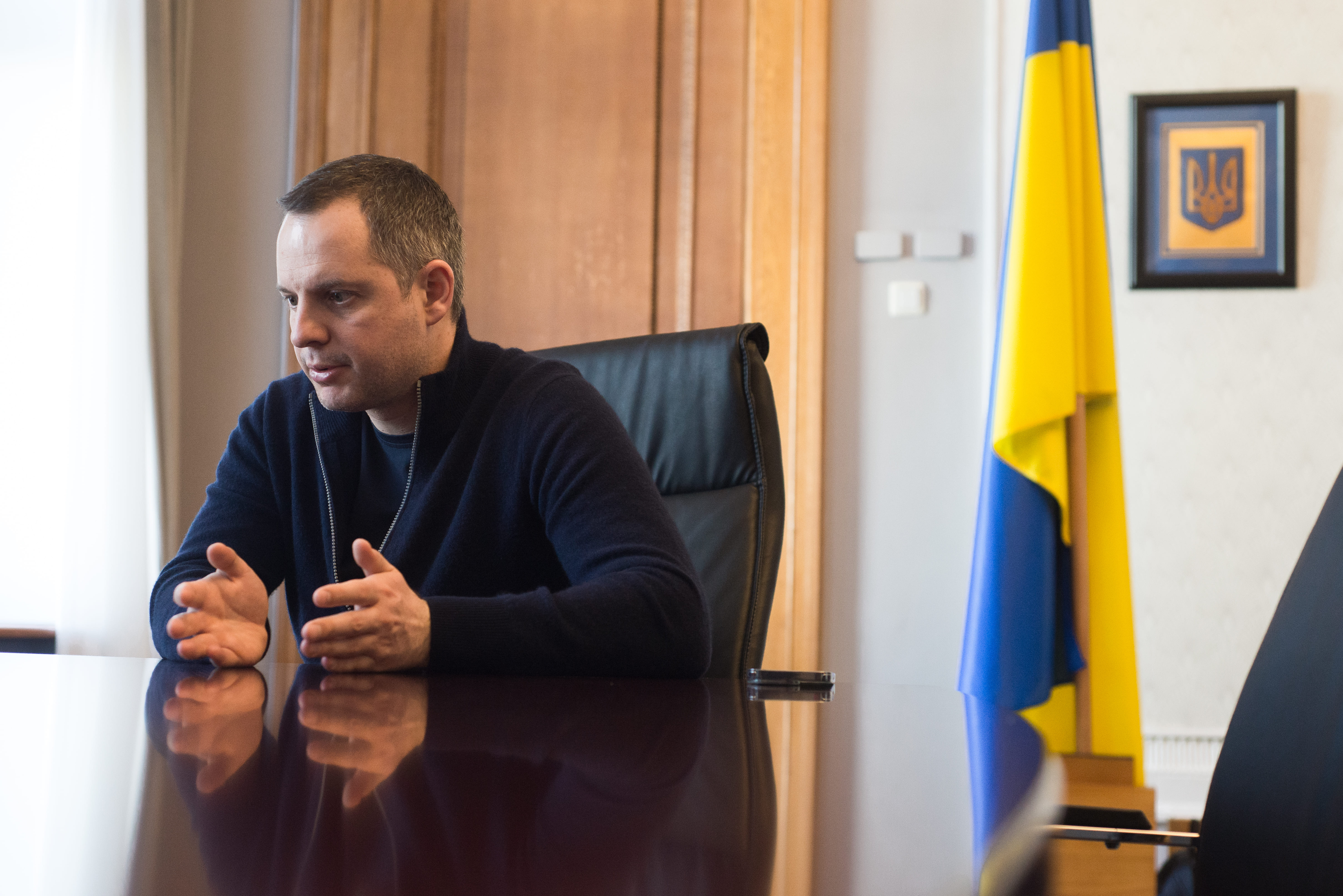 Rostyslav Shurma. Photo by Zoya Shu
Rostyslav Shurma. Photo by Zoya Shu
What companies can you name that are taking part in the discussion?
We are not engaging with companies because this reform is not being done in the interests of particular companies. We are engaging with business associations and industry associations. What is very important, in doing this tax reform, is that we are trying to avoid any sectoral lobbies.
You have also worked in business before coming to PO. Have you been involved in tax minimization?
I have worked in almost 20 different sectors. And I understand very well in what sector which instruments are used. Personally, I have never committed any tax offenses.
You recently said that you would agree on the reform with the IMF by March. What is the situation now?
We have agreed in the memorandum with the IMF that we will indeed discuss the future fiscal policy and future tax policy together with the IMF.
If the question is whether we can register the relevant bill in the parliament, then we can do it as early as tomorrow.
Why don’t you register the bill?
There is such a thing as ethics in relationships. What is the problem with our policy? Someone is negotiating with someone about something in a good sense of negotiation and then begins to exert pressure through the registration of bills, through some publications in the press. Unfortunately, this is the norm in our policy.
I am still a business person, I am used to if we agree, then we strictly adhere to our agreements. Even if there are deviations in terms, we must adhere to the agreements and preserve the face and trust of one to the other.
I do not call tax reform liberal. I have always said that it is competitive and anti-corruption first of all.
So we agreed with the IMF on the reform. Agreed that we will reflect this in the memorandum. So we did it - finished with the memorandum, started working on its implementation. We are discussing calculations, formulations, etc.
At the same time, Danylo Hetmantsev, the head of the Parliamentary Committee on Financial, Tax and Customs Policy, said that from July 1, at the request of our partners, the tax system must return to the state it was in before the war. That is, there will be tax audits and fines again...
There are two things. The first is the cosmetic tidying up of the existing tax system. Because when the war started, we gave a huge number of benefits to businesses. And now we have to take them away.
And tax reform is a change in the system - the level of rates, sometimes the objects to taxation, the system of benefits, the system of administration, and the introduction of new principles of taxation. This is fundamental reform.
So these don't contradict each other?
No, these are two absolutely parallel things. One is a short-term thing, where it is necessary to completely remove non-market, sometimes wrong benefits, such as a single tax at a reduced rate – 2 percent, which were mistakenly introduced. That is, they didn’t produce any results.
And there is a fundamental change in the tax system.
In one of your interviews in January, you said that the IMF still doesn’t understand the importance of this tax reduction.
Yes, they do not understand it. Again, it wouldn’t be proper to comment on the negotiations, but there is a particular approach our partners have. It’s quite dogmatic, in fact. There are some arguments that they don’t take into account. The question is that for any calculations it is always necessary to approach with certain assumptions.
I think Ukraine, like no other, has the right to an exemption in order to create special conditions so that after the war when we are rebuilding the country - we need to offer truly unique conditions for 5-10 years not only in terms of taxes but also in terms of the regulatory environment.
You already mentioned that the reform could be implemented this year. However, at the Summit about tax reform, in his address, the Head of the PO Andriy Yermak noted that the reform is possible after victory, that is, after the end of the war. Prime Minister Denys Shmygal also emphasizes this point. Why are you talking about different terms?
We have no disagreement on this matter. Both the Prime Minister and the Head of the PO have said that reform should be implemented after the war.
This means that the model must be agreed upon, voted on, and approved during the war. Our goal is to agree on this model, vote and approve it as soon as possible, and it is quite possible that it will be launched after the war. We don't need to wait for the end of the war to adopt this tax reform.
How does the President assess the reform? What are his comments?
It’s not appropriate for me to answer on behalf of the President, but he absolutely believes in the need for tax reform.
The President's vision is to make the whole country work officially – above board. That's why he’s willing to consider any tax reform options that really allow businesses to operate honestly and maintain financial stability. So, the proposal of "10-10-10" was born, as it, in our view, solves these two issues.
 Rostyslav Shurma. Photo by Zoya Shu
Rostyslav Shurma. Photo by Zoya Shu
Your proposed tax reform is called liberal. Did you have the same liberal views when you represented the interests of the former party "Opposition Block" which was called pro-Russian?
I do not call this reform liberal. I have always said that it is competitive and anti-corruption first of all. It is liberal in its lower tax rates, but its non-liberalism is in the fact that there are tough penalties for tax violations. So liberalism is a very dubious question about this tax reform.
As for the “Opposition Block” - my economic views haven’t changed. They were formed 10 years ago in the process of working in business. I clearly understand what needs to be done in practice to make both small and medium businesses develop and large companies invest in the country. And which political party does this is only using their platform as an instrument for promoting their economic views, nothing more.
The financial group Investment Capital Ukraine forecasts that the Ukrainian economy will grow by 2 percent in 2023. How do you assess these figures?
I think there is no sense in commenting on this, whether it will be 2 percent, 0.2 percent or even 4 percent. It all doesn't matter.
What is important is that until the war ends, we get no security guarantees, not all reforms can be implemented - from anti-corruption to taxation, there will be no economic breakthrough.
The economy is in a state of anabiosis. Objectively, what is plus-minus 2 percent for the economy now, if we lost 30 percent in GDP last year? This means that we now have to grow almost 50 percent to reach the pre-war level.
You can also highlight the text and press Ctrl + Enter


